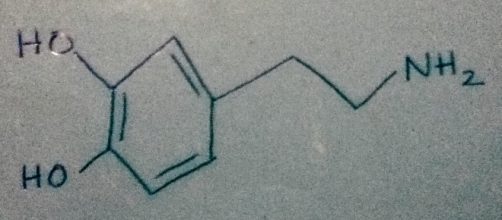Dopamine is classified inside of the brain as a neuromodulator and a neurotransmitter: a chemical released by Nerve Cells in the brain to send signals to other nerve cells -- both in the body and the brain. There are several main dopamine pathways with the most notable playing a major role in motivating and rewarding behaviors.
Main functions
Dopamine is mostly produced in two areas of the brain whose combined sizes hardly amount to that of a postage stamp. These two areas make up the major part of the brain called the Basal Ganglia, located at the base of the forebrain: the forward-most portion of the brain.
The Substantia Nigra produces dopamine and has a role in the beginning of movement and speech, while the Ventral Tegmental Area releases dopamine when a reward is expected or received. It essentially tells the body that whatever it is, it is worth doing more of.
Dopamine plays a major role in:
- Motor Control
- Motivation
- Arousal
- Reinforcement
- Rewards
- Lactation
- Sexual Gratification
- Nausea
High quantities
High amounts of dopamine are typically associated with addiction. Addictive drugs such as Cocaine, Nicotine, Heroin, and other methamphetamines cause dangerous spikes in dopamine levels. While this is not increasing pleasure, per se, it tells the body that it wants more, even though it can be very harmful.
Low quantities
Low levels of dopamine are associated with disorders like Restless Leg Syndrome (RLS), and Attention Deficit Hyperactive Disorder (ADHD). In small amounts, dopamine can aid focus, particularly in attention disorders.
Parkinson's Disease is another condition that occurs when parts of the brain lose dopamine secreting neurons.
Other disorders that have been linked to lowered dopamine levels include social anxiety, social phobia, and anhedonia: losing pleasure in daily activities, such as eating and drinking.
Medication
Dopamine can be prescribed for a myriad of mental and physical disorders. One of the most common is in antipsychotics for the treatment of Schizophrenia, Bipolar Disorder, Unipolar Depression, and psychosis, among others.
It can also be administered intravenously (with a needle). In this form, it does not reach the brain, which makes it a good treatment for heart shock and failure -- particularly in newborns. It offers blood pressure support, and mediates the effects of heart issues by improving blood flow.
Note: As stated in my article about serotonin, please be very careful about any sort of substance interactions in your body. Do your research, ask for advice, and always play it safe. If you don't know, find out first.


